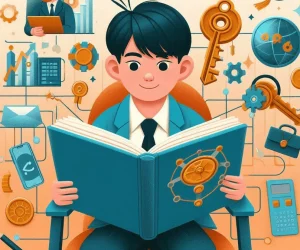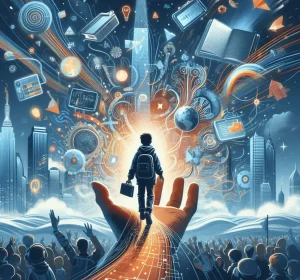Not long ago, I was discussing with a future Think Tank member his concerns about how education in North America and around the world is not keeping up with technology, or ready for the future of computer-brain interfaces. This may sound like an esoteric topic, however when you consider the speed of these technologies, I am sure we’ve already all thought about how in the future, your smart phone will be nothing more than a brain-chip with full Internet Access that works with your organic brain in real-time. Want to send a thought, just think it, think about whom you’d like to send this thought to, and it’s sent, post on social media and you are done.
Want to learn a new topic, no need, you have instant access to all human information, and it will feel as if it is all in your own memory, just think a question and viola, you have the answer. My think tank acquaintance noted that we are a ways off from that future, and if the past is any indication of how we might handle that future, then we are in big trouble. Education is broken already, and it will not be able to adapt to something that different. He noted we need to fix all the rote memorization teaching, it isn’t working. And, I would submit to you that it will be even worse in the future, in fact; why memorize anything if you have full-time unlimited access to all the information ever created and stored in the cloud of humanity?
So what he is saying is that we have to teach people to THINK, not just put the students in rows, open their skulls and pour information in to them, which is what pedagogy has been for most of the 20th century and now to for a lot of this century. I of course agree. If we integrate the brain-chip or implanted information, or access to all human information in real time to the brain, it will only work if the human user has enough foresight to ask the right questions, and cross-pollinate the information in an innovative and creative way. This is something that humans are good at, when they practice it, and as of yet, AI computers are not so good at. Together (AI + human brains) it will be smarter than either on its own, smarter than today’s human and smarter than a future AI computer chip w/instant access to all human information to date and up on all new information in real-time.
The increase in IQ wouldn’t matter. Everyone would be super smart and retain unlimited information in the cloud storage device or set of distributive cloud computers around the planet. The best and most creative minds would use this information in the most novel ways, ask the best questions and have most of those questions answered to pose new ones. The speed of innovation would be so intensive that Ray Kurzweil’s “Singularity” theory would be realized in short order.






More Stories
How Special Needs Advocates Empower Families
Why Special Needs Preschools Are Essential for Growth
Top Special Education Resources to Enhance Instruction